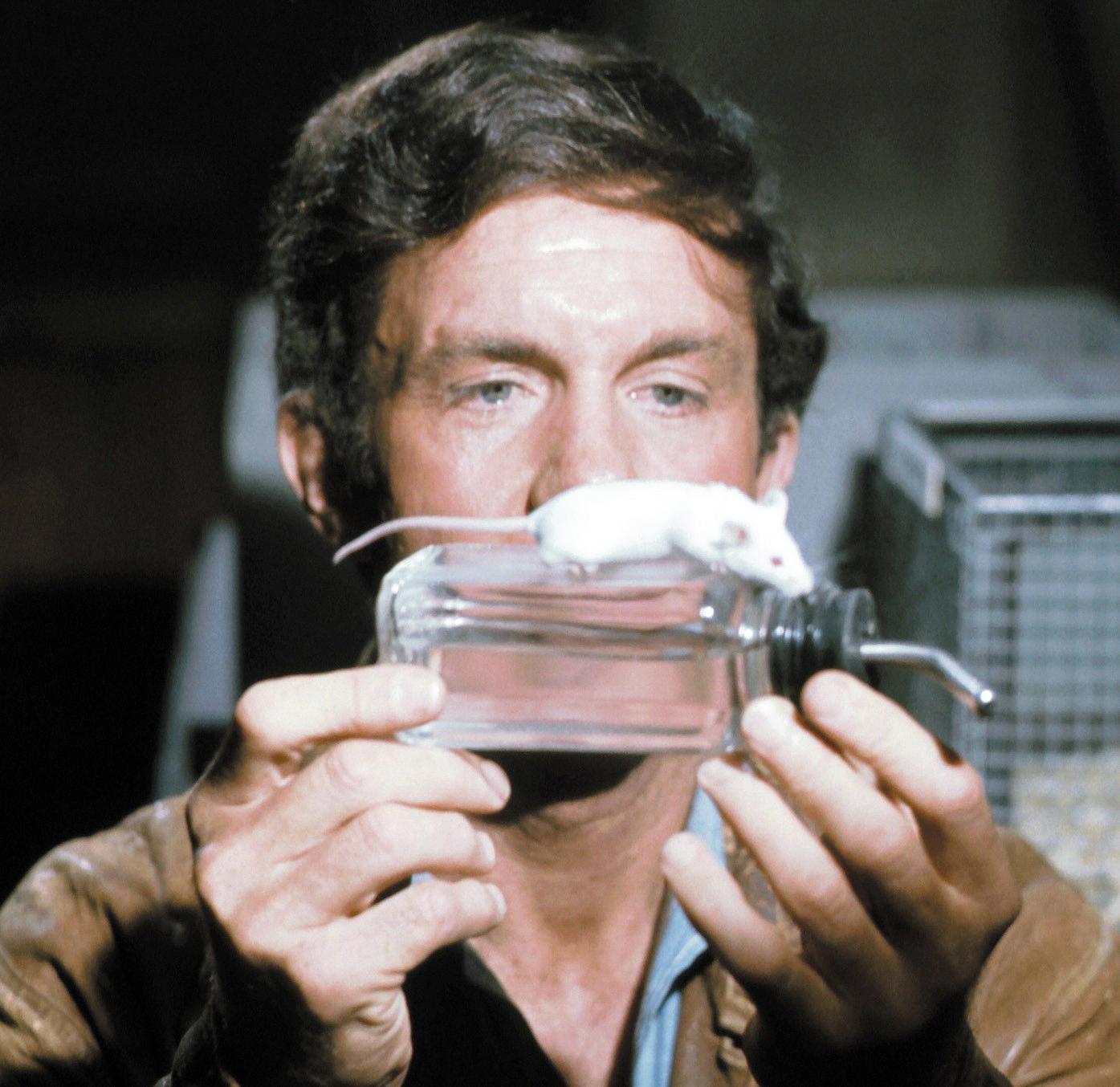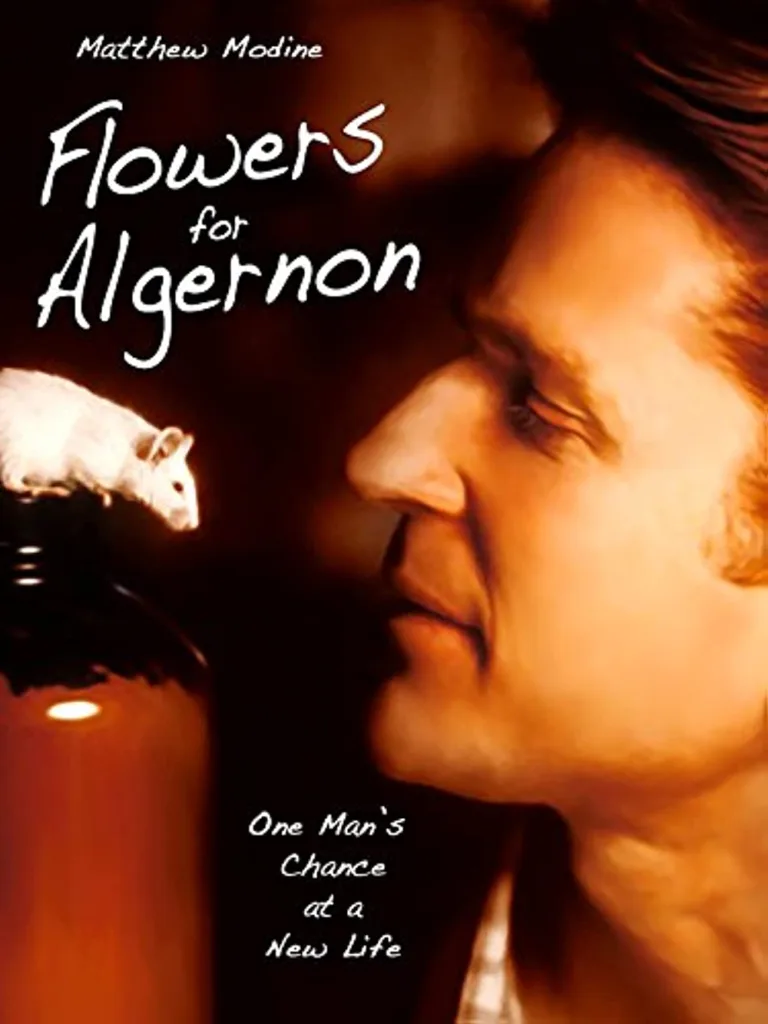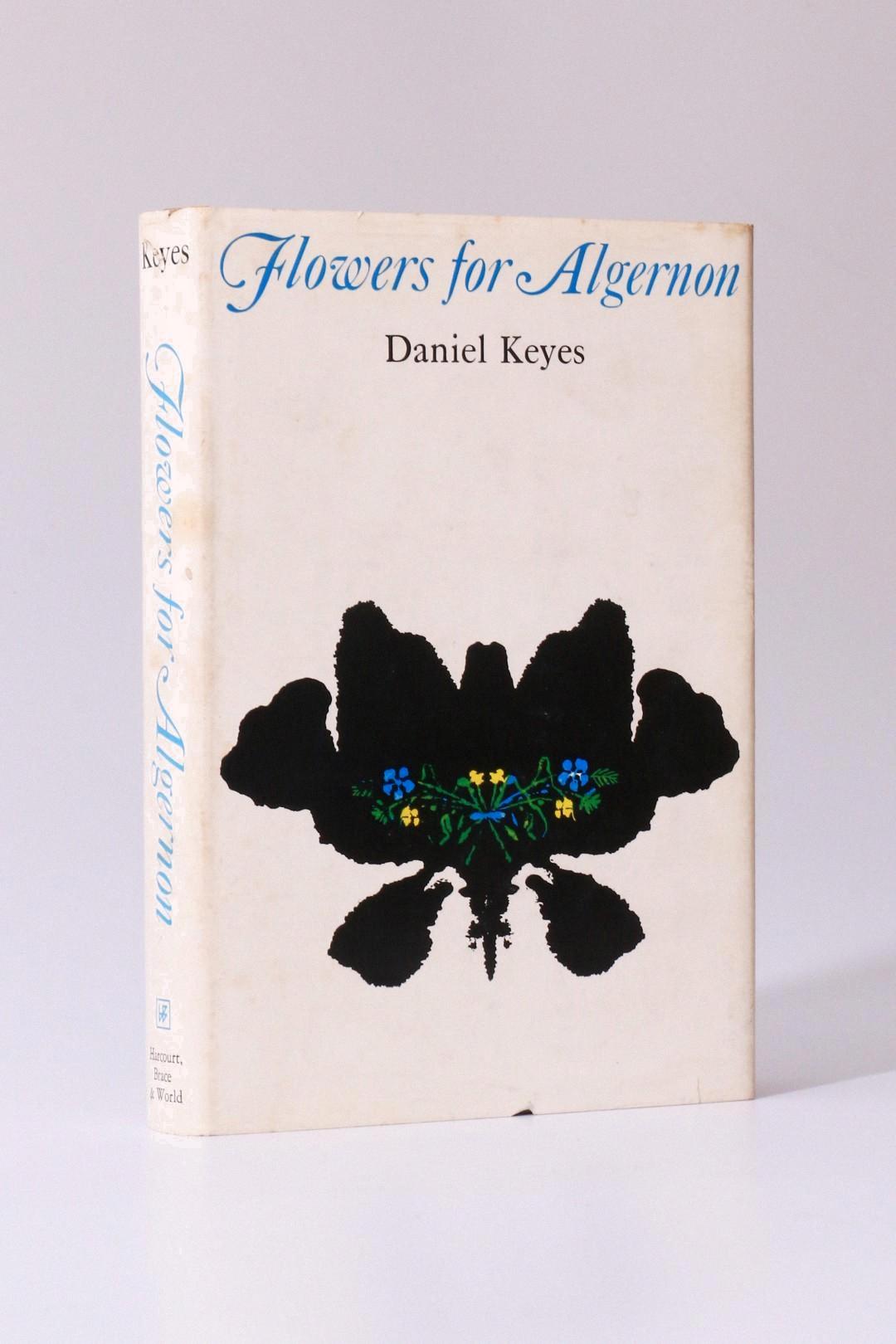Flowers for Algernon is a thought-provoking and emotionally stirring movie that explores the depths of human intelligence and the consequences of tampering with it. The film, directed by Jeff Bleckner and starring Matthew Modine, is based on the classic novel by Daniel Keyes and is the second screen adaptation of the story.
The movie folows the story of Charlie Gordon, a mentally disabled man who works as a janitor in a bakery. Charlie is chosen for an experimental surgery that will increase his intelligence, and he records his thoughts and progress in daily progress reports. As Charlie’s intelligence rapidly increases, he begins to experience new emotions and desires, and he becomes increasingly aware of the world around him.
Matthew Modine delivers a powerful performance as Charlie Gordon, capturing the character’s childlike innocence and curiosity as well as his growing sense of self-awareness and emotional complexity. Modine’s portrayal of Charlie’s struggles with his newfound intelligence is both heart-wrenching and captivating, and he brings a depth of humanity to the character that is truly remarkable.
The film also features a standout performance by Kelli Williams as Alice Kinnian, Charlie’s teacher and friend. Williams brings a warmth and compassion to the role that is essential in grounding the story and providing emotional support to Charlie as he navigates the complexities of his new life.
Throughout the movie, we see the consequences of Charlie’s increased intelligence as he becomes more aware of the world around him and experiences new emotions and desires. We see the impact on his relationships with those around him, including his coworkers, his family, and his friends. As Charlie’s intelligence continues to increase, he begins to question the ethics of the experiment and the motives of those who conducted it.
Flowers for Algernon is a powerful and moving film that explores the complexities of human intelligence and the consequences of tampering with it. Through Modine’s masterful performance and Bleckner’s expert direction, the movie delivers a thought-provoking and emotionally resonant experience that will stay with viewers long after the credits roll.
Is There a Movie Adaptation of ‘Flowers for Algernon’?
There is a Flowers for Algernon movie. It is a 2000 American-Canadian television film directed by Jeff Bleckner and stars Matthew Modine. This movie is the second screen adaptation of Daniel Keyes’ 1966 novel of the same name, following the 1968 film Charly. The film tells the story of a mentally disabled man named Charlie Gordon who undergoes an experimental surgery that increases his intelligence. As his intelligence grows, Charlie’s relationships and understanding of the world around him change. The film received positive reviews and is a faithful adaptation of the novel.

Source: nature.com
Is Flowers For Algernon Based On A Real Story?
Flowers for Algernon is a work of fiction and is not based on a true story. The author, Daniel Keyes, has stated that although some aspects of the story were inspired by his own life, such as his parents’ insistence that he study medicine instead of pursuing his passion for writing, the plot and characters are entirely fictional. The novel tells the story of Charlie Gordon, a man with an intellectual disability who undergoes an experimental procedure to increase his intelligence. While the story is not based on a true event or person, it touches on themes such as the ethics of medical experimentation and the treatment of people with disabilities, wich have real-world implications and continue to be relevant topics of discussion.
Charlie’s Disability in Flowers for Algernon
Charlie Gordon in the novel Flowers for Algernon by Daniel Keyes has a mental disability. Specifically, he has an intellectual disability that limits his cognitive abilities and affects his ability to learn and process information. Charlie’s condition is described as a low IQ, which makes it difficult for him to understand complex situations and communicate effectively. The story follows Charlie’s journey as he undergoes an experimental surgery to improve his intelligence, leading to a temporary increase in his cognitive abilities before he ultimately regresses back to his previous state.
The Fate of Charlie After Algernon’s Death
After Algernon dies, Charlie experiences a period of deep sadness and grief. He mourns the loss of his dear friend and constant companion, and feels a sense of emptiness wthout him. Charlie also begins to realize the full extent of his own condition, as he understands that his own intelligence boost may be temporary and that he could eventually suffer the same fate as Algernon. Despite this, Charlie continues to work at the bakery and tries to move forward with his life. He also reflects on the lessons he learned from Algernon, such as the importance of compassion and kindness towards others. In the end, Charlie honors Algernon’s memory by continuing to strive for personal growth and self-improvement, and by cherishing the memories they shared together.
The Significance of Algernon to Charlie
Algernon holds a significant meaning to Charlie throughout the story. Initially, Algernon is simply a subject of the same experiment that Charlie undergoes, a mouse who has been surgically enhanced to increase its intelligence. However, as the story progresses, Algernon becomes a symbol of hope for Charlie, as he witnesses the mouse’s successful cognitive abilities. As Charlie’s own intelligence increases, he becomes emotionally attached to Algernon and sees a reflection of himsef in the mouse. Algernon’s decline and mortality become a harsh reality for Charlie, forcing him to confront his own mortality and the ethical implications of the experiment. Ultimately, Algernon serves as a catalyst for Charlie’s character development and his eventual acceptance and understanding of his own limitations and mortality.

The Fatal Flaw in Flowers for Algernon
The fatal flaw in “Flowers for Algernon” is Charlie’s hubris, which is his excessive and selfish pride. Charlie’s desire to become a genius was driven by his overwhelming sense of pride and the belief that he was better than others. This hubris ultimately led to his downfall, as his intelligence-enhancing surgery proved temporary, and he eventually regressed back to his previous level of intelligence. Charlie’s pride also caused him to become isolated from others, as he believed that he was superior to his former friends and coworkers. Ultimately, Charlie’s hubris is what prevents him from finding true happiness and fulfillment in life, as he is unable to connect with othes and accept his own limitations.
The Meaning of Pulling a Charlie Gordon
To pull a Charlie Gordon means to make a stupid mistake or to act foolishly. The phrase is derived from the main character in the novel “Flowers for Algernon” by Daniel Keyes, who undergoes an experimental surgery to increase his intelligence. However, as his intelligence increases, he becomes aware of his past mistakes and foolish actions, leading to feelings of embarrassment and shame. The phrase “pulled a Charlie Gordon” is often used in a lighthearted manner among friends to describe a silly or foolish mistake, without intending to be hurtful or disrespectful to the character or the novel.
Does Miss Kinnian Have Feelings for Charlie?
Miss Kinnian loves Charlie. As the story progresses, it becomes clear that Miss Kinnian develops strong feelings for Charlie. She is patient and supportive of him throughout his intellectual regression, and continues to care for him even when he is unable to reciprocate her feelings. Despite the challenges they face, Miss Kinnian gives herself completely to Charlie, demonstrating her deep love and devotion to him.
What Will Charlie Do When Algernon Dies?
When Algernon dies, Charlie requests that he be given the opportunity to bury him properly. Typically, laboratory specimens are incinerated, but Charlie expresses a desire to give Algernon a dignified farewell. This request suggests that Charlie has developed a strong emotional bond with Algernon and values his life beyond just being a test subject. By burying Algernon, Charlie hopes to honor his memory and acknowledge the impact that he has had on his life.

Source: books.hyraxia.com
The Fate of Charlie at the End of the Story
At the end of the story, Charlie flees back to New York with Algernon, the white lab mouse who underwent the same experimental surgery as Charlie. Charlie gets his own apartment, where he can live independently without the scientists’ supervision. He decides to leave the lab after realizing that his intelligence will eventually decline, and he doesn’t want to be a subject of study anymore. Charlie’s decision to leave the lab is a result of his emotional growth, as he learns to value human relationships and experiences over intelligence. Despite knowing that he will inevitably lose his enhanced cognitive abilities, Charlie chooses to live a fulfilling life on his own terms.
Conclusion
Flowers for Algernon is a thought-provoking film that explores the complexities of intelligence, humanity, and morality. Through the character of Charlie Gordon, the film challenges our understanding of what it means to be intelligent and the consequences of artificially enhancing human intelligence. Matthew Modine delivers a powerful performance as Charlie, capturing the character’s vulnerability, innocence, and transformation with great sensitivity. The film’s themes of acceptance, empathy, and the pursuit of knowledge resonate strongly throughout, making it a compelling watch for audiences of all ages. While it may not be based on a true story, Flowers for Algernon is a touching and thought-provoking film that will stay with viewers long afer the credits roll.
